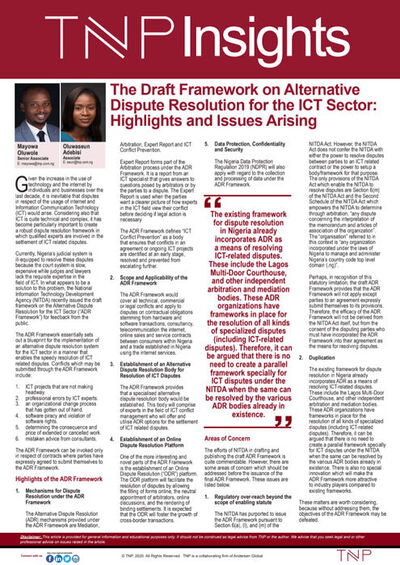Given the increase in the use of technology and the internet by individuals and businesses over the last decade, it is inevitable that disputes in respect of the usage of internet and Information Communication Technology (ICT) would arise. Considering also that ICT is quite technical and complex, it has become particularly important to create a robust dispute resolution framework in which qualified experts are involved in the settlement of ICT related disputes.
Currently, Nigeria’s judicial system is ill-equipped to resolve these disputes because the court system is slow, expensive while judges and lawyers lack the requisite expertise in the field of ICT. In what appears to be a solution to this problem, the National Information Technology Development Agency (NITDA) recently issued the draft framework on the Alternative Dispute Resolution for the ICT Sector (“ADR Framework”) for feedback from the public.
The ADR Framework essentially sets out a blueprint for the implementation of an alternative dispute resolution system for the ICT sector in a manner that enables the speedy resolution of ICT related disputes. Conflicts which may be submitted through the ADR Framework include:
- ICT projects that are not making headway.
- professional errors by ICT experts.
- an organizational change process that has gotten out of hand.
- software piracy and violation of software rights.
- determining the consequence and price of extended or cancelled work.
- mistaken advice from consultants.
The ADR Framework can be invoked only in respect of contracts where parties have expressly agreed to submit themselves to the ADR Framework.



